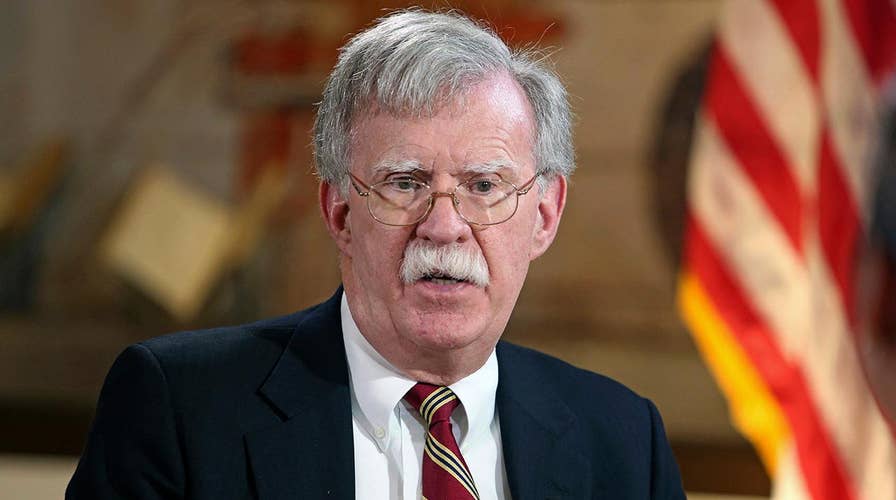The White House will soon impose major new sanctions against the Cuban government over its support for the regime of contested Venezuelan President Nicolas Maduro, a source familiar with President Trump's national security team told Fox News.
The White House announced sweeping sanctions against Maduro's government in January, and in a fiery anti-socialism address last month, Trump linked Cuba and Venezuela's fortunes: "The days of socialism and communism are numbered not only in Venezuela, but in Nicaragua and Cuba as well," Trump said, as the crowd roared. "Do we love Cuba? Do we love Nicaragua? Great countries. Great potential."
The move against Cuba -- which Trump has accused of propping up Maduro as a puppet -- would be an application of the Helms-Burton Act, Fox News is told. That 1996 law includes a provision that, if activated, would permit Cuban Americans who are U.S. citizens to file lawsuits against both foreign corporations and individuals concerning property seized by the Cuban government, including during the 1959 Cuban Revolution led by Fidel Castro.
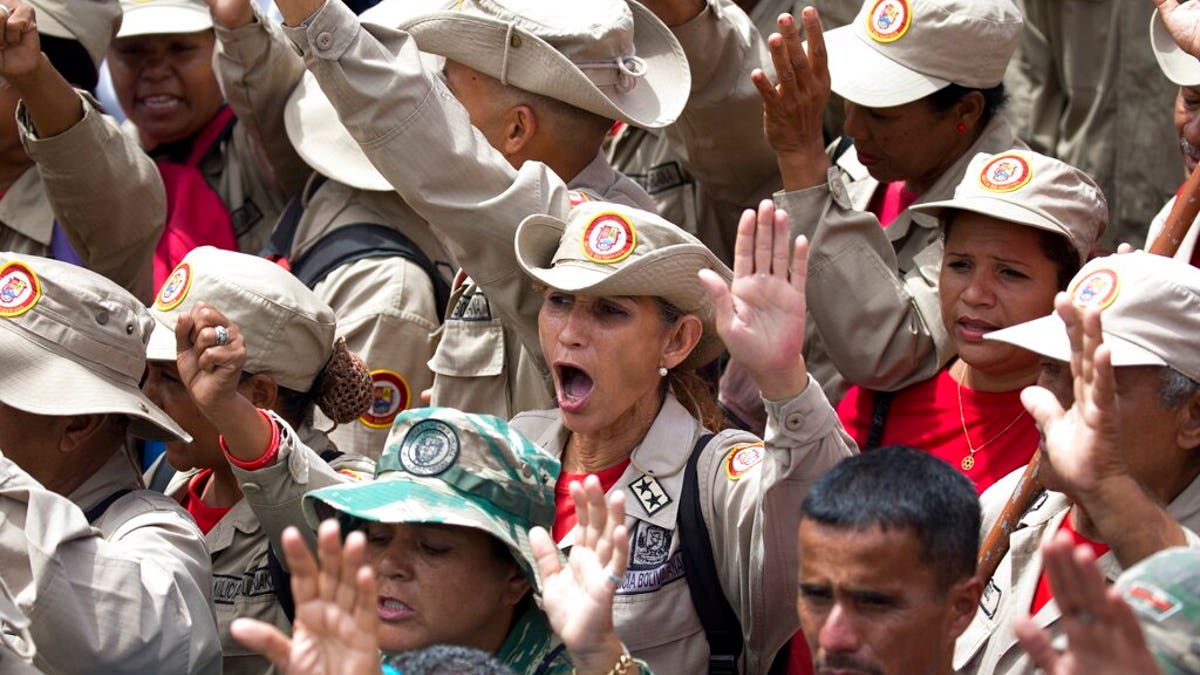
Members of the Bolivarian Militia raise their hands swearing allegiance to the fatherland during an "anti-intervention" march coinciding with the anniversary of the deadly 1989 social uprising against neoliberal measures known as the Caracazo, in Caracas, Venezuela, Wednesday, Feb. 27, 2019. (AP Photo/Ariana Cubillos)
The Title III provisions of Helms-Burton have been waived by every administration, but the Trump administration in January opted only to suspend its terms for 45 days, rather than the normal six-month period that previous administrations have repeatedly invoked.
CUBAN GUARDS SURROUNDING MADURO, US MILITARY COMMANDER SAYS
“This extension will permit us to conduct a careful review of the right to bring action under Title III in light of the national interests of the United States and efforts to expedite a transition to democracy in Cuba," the State Department said. "We encourage any person doing business in Cuba to reconsider whether they are trafficking in confiscated property and abetting this dictatorship.”
In response, Cuban Foreign Minister Bruno Rodriguez characterized the Trump administration's move on Twitter as "political blackmail” and a “brutal attack against international law.”
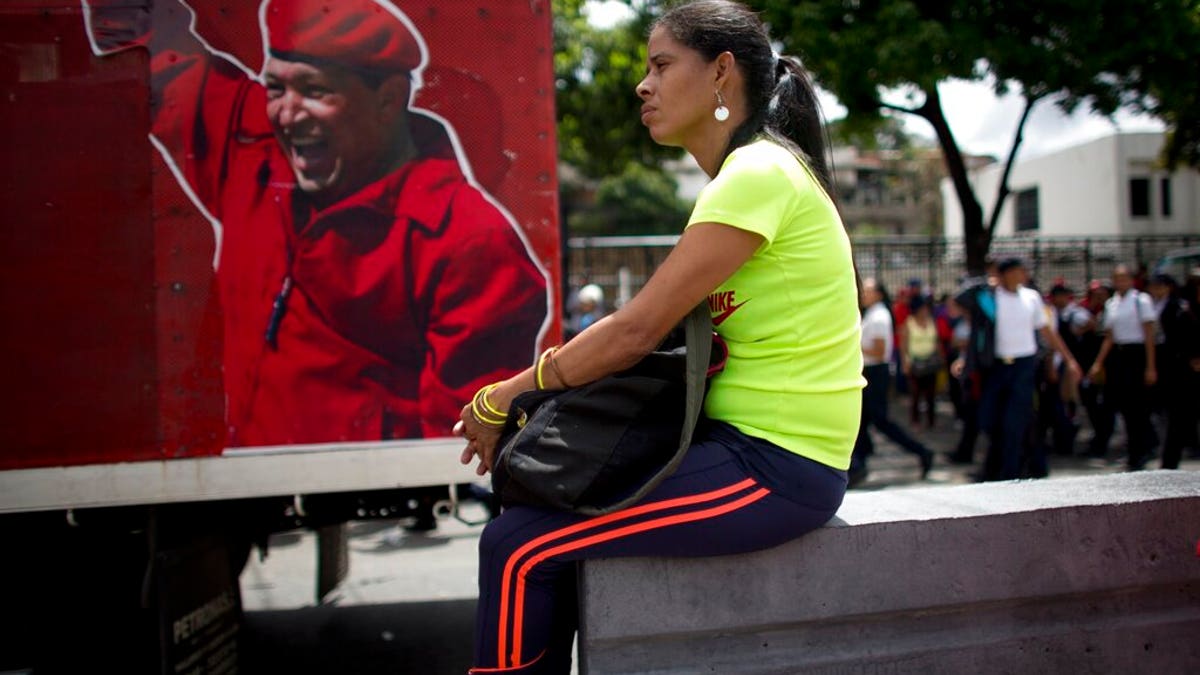
A supporter of Venezuela's President Nicolas Maduro sits next to an image depicting the late president Hugo Chavez during an "anti-intervention" march coinciding with the anniversary of the deadly 1989 social uprising against neoliberal measures known as the Caracazo, in Caracas, Venezuela, Wednesday, Feb. 27, 2019. (AP Photo/Ariana Cubillos)
In February, Navy Adm. Craig S. Faller, commander of U.S. Southern Command, testified before the Senate Armed Services Committee on Thursday that Maduro, fearing for his own safety, has “completely surround[ed]” himself with Cuban security.
“I think it’s a good sense of where the loyalty of the Venezuelan people are, that his immediate security force is made up of Cubans,” Faller told the committee.
Sen. Tom Cotton, R- Ark., apparently surprised by the testimony, asked how many of these Secret Service-style guards Maduro has in the country.
The answer: “I don’t have that number” but “I’d say there are many.”
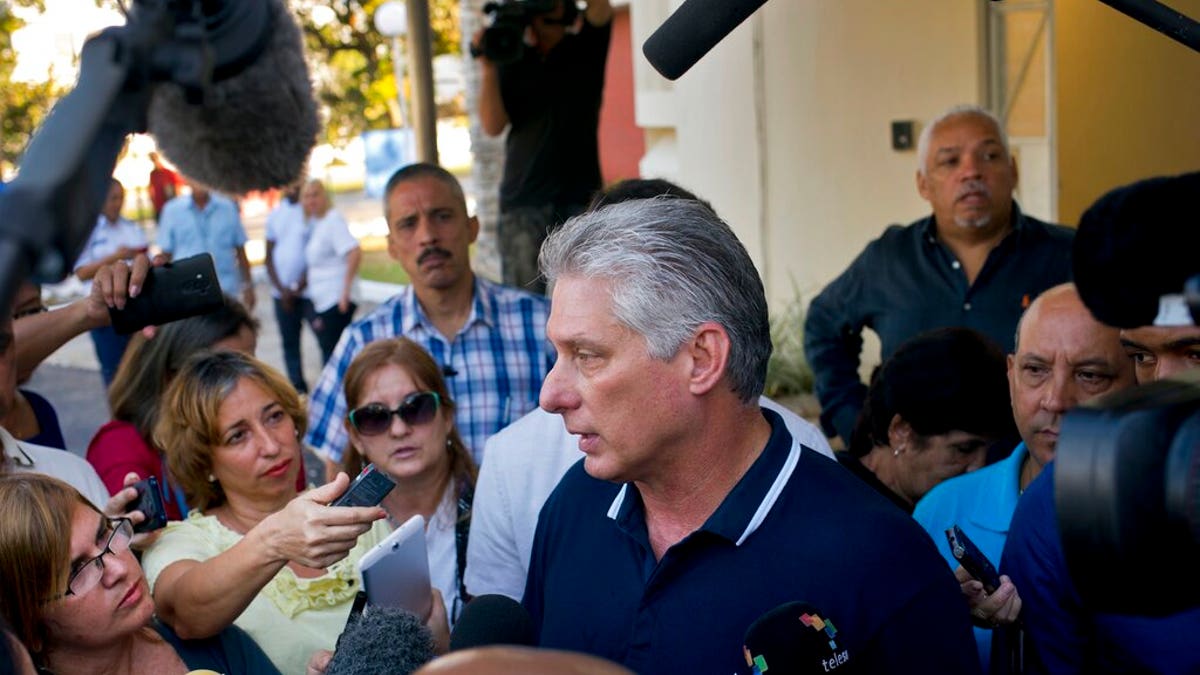
Cuba's President Miguel Diaz-Canel talks to the press after voting in a referendum to approve or reject the new constitution in Havana, Cuba, Sunday, Feb. 24, 2019. The constitutional reforms maintain Cuba's single-party political system and centrally planned economy while recognizing private property and small businesses, which have been part of the island's economy without formal legal status for more than a decade. (AP Photo/Ramon Espinosa)
Faller added that Russia and China have been involved in what intelligence officials say are measures to support Maduro’s regime. “We’ve seen reporting of Russian security forces being flown in,” he said. “China’s not been helpful in a diplomatic way. I’ll leave that to the diplomats, but China’s in there and they’re involved in cyber ways that are not helpful to a democratic outcome.”
Meanwhile, nearly 87 percent of Cuban voters approved a new constitution that preserves the island's single-party Socialist system and centrally planned economy while updating some financial, electoral and criminal laws, authorities there said in late February. The margin of victory was relatively low for a country where opposition parties and campaigns are illegal and official proposals routinely receive higher than 90 percent approval.
The U.S., which has recognized opposition leader Juan Guaido as interim president of Venezuela, has sent aid to Venezuela despite Maduro’s refusal to accept it. Late last month, Maduro-backed troops blocked the aid convoys at the border and fired tear gas on protesters in clashes that left two people dead and some 300 injured, as Maduro insisted the aid was a ploy by the U.S. to undermine his leadership.
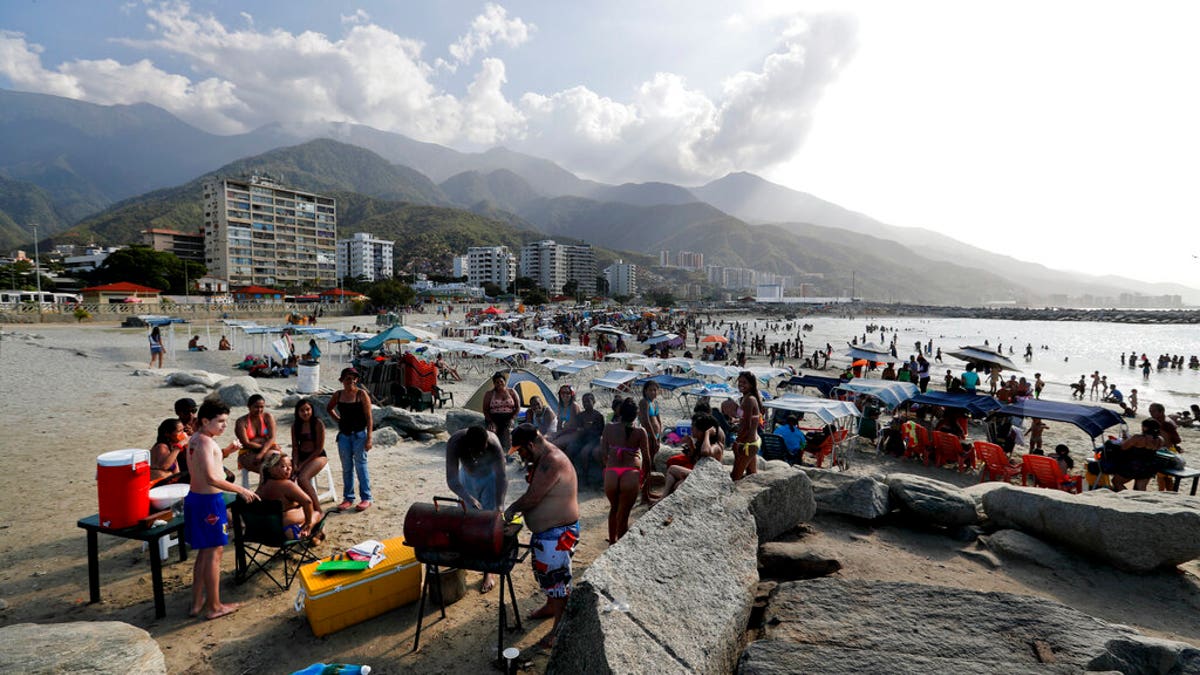
A family from Caracas prepares food during a day trip to Camuri Chico beach in Vargas state, Venezuela, Friday, March 1, 2019. It’s carnival season in Venezuela, though many citizens are not in a mood to party, as the country is gripped by a political crisis that pits leader Nicolas Maduro against Juan Guaido, the opposition chief who was in Paraguay on Friday as part of a campaign to build international pressure on his rival to quit. (AP Photo/Eduardo Verdugo)
"How many of you national guardsmen have a sick mother? How many have kids in school without food," Guaido said, standing alongside a warehouse in the Colombian city of Cucuta where 600 tons of mostly U.S.-supplied boxes of food and medicine have been stockpiled. "You don't owe any obedience to a sadist...who celebrates the denial of humanitarian aid the country needs."
The Trump administration imposed sanctions Friday on six high-ranking members of the Venezuelan security forces and revoked the visas of other officials and their relatives over the aid blockade.
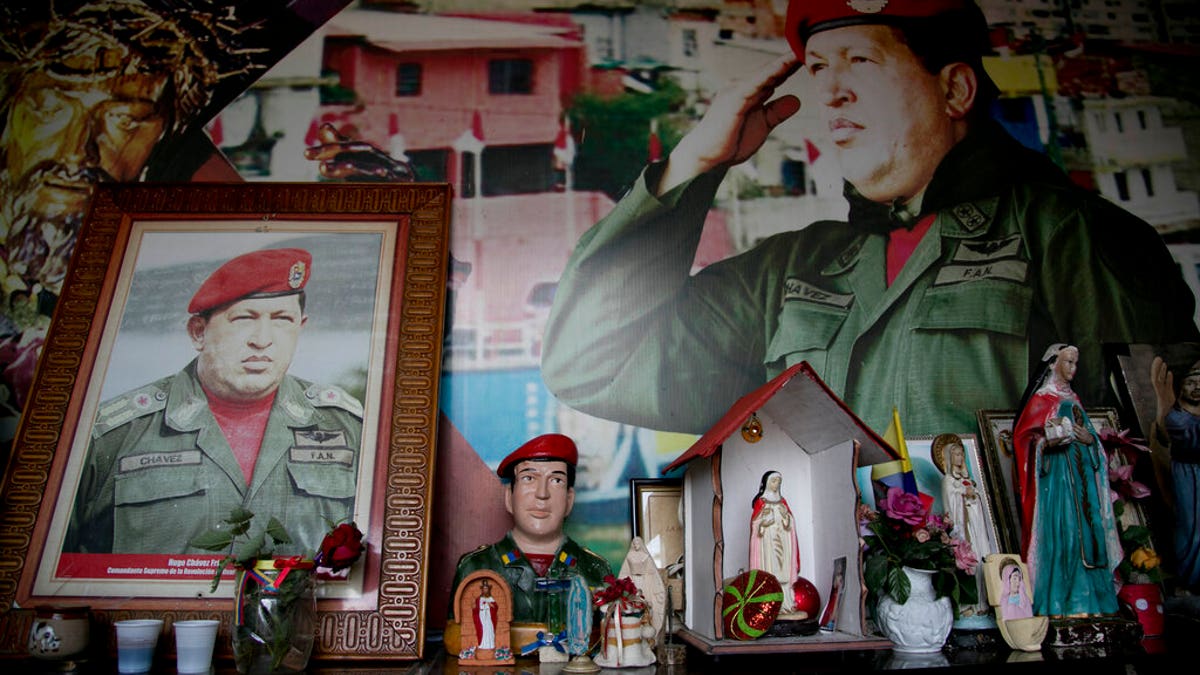
Images of Venezuela's late President Hugo Chavez are surrounded by religious iconography inside a small chapel in the 23 de Enero neighborhood of Caracas, Venezuela, Saturday, March 2, 2019. (AP Photo/Eduardo Verdugo)
The measures were the latest by the Trump administration to increase the international pressure on Maduro, whose re-election last year is seen as illegitimate, to resign and turn power over to Guaido, who has been recognized by the U.S. and 50 other government as interim president.
The State Department later said that the U.S. had revoked the visas of 49 people, making them subject to deportation if they are in the country. It placed an unspecified number of others on a visa restriction list.
Fox News' Paulina Dedaj and The Associated Press contributed to this report.








































